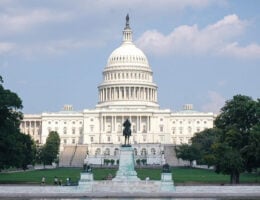On 5 March 2024, Treasury and the IRS published Treas. Reg. § 1.48D-6 (“Final Regulations”), which implements the section 48D(d) election allowing eligible taxpayers to treat the amount of the advanced manufacturing investment credit (“CHIPs Credit”) established under the Creating Helpful Incentives to Produce Semiconductors Act of 2022 as a payment against Federal income tax liabilities, i.e., a “direct pay election” For eligible taxpayers seeking to treat the CHIPs Credit allowed in any tax year as a payment against Federal income tax liabilities in lieu of claiming the credit, the Final Regulations generally retain the structure and framework for administering the election laid out in proposed and temporary regulations, with welcome modifications to clarify key issues relating to the limitations for making the elective payments, the ‘denial of double benefits’ rule, and the election’s pre-filing requirements.
On 28 December 2023, the Treasury and the IRS issued a notice of proposed rulemaking regarding whether a debt instrument is worthless for US federal income tax purposes under Code section 166 (the “Proposed Regulations”). The Proposed Regulations would update the standards under Treas. Reg. § 1.166-2 used to determine when debt instruments held by regulated financial companies or members of a regulated financial group are conclusively presumed worthless.

